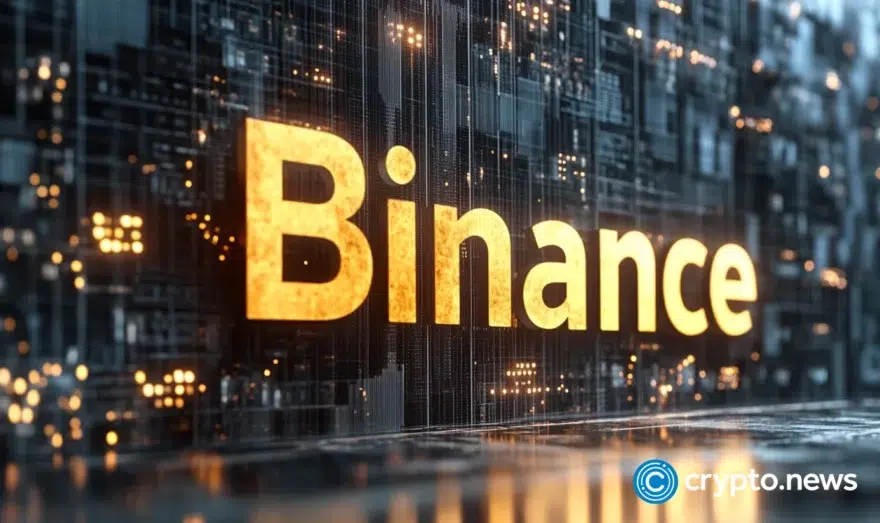More brands will be using web3 to capture market share in 2024 | Opinion

Disclosure: The views and opinions expressed here belong solely to the author and do not represent the views and opinions of crypto.news’ editorial.
Consumer retail spending is rising, with shoppers spending almost $10 billion in online Black Friday sales this year. Clearly, demand for great products has not waned despite inflation, and so competition for consumer attention is on the rise. There is an unexpected beneficiary to this tug-of-war between brands for consumer dollars—web3. In 2024, we’re likely to see growing numbers of brands and companies leveraging web3 to strengthen the bond between their brand and customers.
Blockchain engagement campaigns
The latest developments in web3 give consumer brands a powerful tool to enhance their membership and loyalty programs. In return for their loyalty, customers can now own their interaction with brands as an NFT, creating powerful incentives for customers to engage with brands they value.
When a company creates a brand incentive program and customers fulfill elements of it—like reaching a spend threshold or interacting on social media—the customers can now be granted ownership of the rewards they earned thanks to web3 technology. Using non-fungible tokens (NFTs) recorded on a public blockchain, points, and status tiers become ownable assets, making them much more compelling as incentive mechanisms.
Customer rewards can be owned and transferred just like any other real-world asset. Ownership of the rewards confers a wide range of potential benefits (discounts, experiences, and so forth) to the owner. This new generation of loyalty mechanism is similar to the dog-eared punch card hiding in your wallet—buy nine coffees, get the tenth one free—but these digital asset NFTs are harder to lose, easier to value, and much easier to transfer.
Most existing loyalty program rewards are non-transferable or challenging to value and sell. But what if a customer could give their top-tier airline status to a friend, rent it out, or even sell it outright on the open market? Enabling ownership and transferability of a consumer’s interaction with a business brings completely new dynamics. Now, the consumer has more incentive to earn those rewards, which benefits both the consumer and the brand.
Brands can easily enable this use case via NFTs that live on public blockchains, which makes it easy to transfer digital assets wallet-to-wallet or through marketplaces. Customers can bring their own web3 wallet, or brands can provide one integrated with the membership app or account. Furthermore, brands need not cede all control by enabling this ownership model. Using smart contract technology to power these NFTs, brands can choose the level of exclusivity or transferability of these assets, retain control over their redemption value as earned fees, and track when these assets change hands. Brands can also choose to hide the use of NFTs or blockchain completely, allowing for a familiar but more powerful experience powered by web3 “under the hood.” Web3 provides a best-of-both-worlds scenario, enabling the aspects of ownership that increase consumer incentives while allowing brands to curate the experience and collect additional data.
Web3-powered loyalty programs and empowering consumers
Brands that don’t sell directly to their customers can face additional challenges when engaging with and understanding their buyers. With web3 technology, though, a company—let’s say an apparel company—can close the loop to gain insights into who is buying their products. Perhaps it involves the customer downloading an app or scanning a QR code through their web3 wallet; the company can then incentivize buyers to provide proof of purchase to earn an NFT and gain additional rewards. Companies can better reach their customers and, by delivering satisfying web3-based incentives, encourage consumers to sign up for a membership account with an embedded web3 wallet.
Alternatively, if a consumer already has their own wallet, then web3 tech offers the ability for brands to market to new, qualified customers. Since wallet contents are publicly visible (though pseudonymous), a big box home improvement store is able to identify wallets that contain a loyalty reward from a major competitor. The big box store could then target the wallet owners with promotional offers and incentivize the customers to shop with them instead.
As a bonus, web3 technology can also facilitate brand partnerships by programming the interactions between web3-powered loyalty programs. A coffee business could partner with a brand—say, an apparel business—with similar customer demographics. Using a smart contract to govern the interaction, a customer of the coffee chain could easily exchange their rewards for discounts at the apparel chain. The two brands can jointly engage with customers, doubling the benefits for consumers; this also expands the audiences for the companies and helps them to get a fuller understanding of the profiles and interests of their customers. With the advent of new cross-chain protocols that provide easy interoperability, the two brands could even use different blockchains.
Web3-powered membership and loyalty programs enable consumers to take ownership of their investment of time and money, creating additional incentives for them to engage. Meanwhile, forward-thinking companies can connect with their customers in creative new ways, easily form new partnerships, and ultimately increase profits via a customer base that is literally invested in the brand. Adopting web3 can be daunting for any company, but the rewards are immense.
Audentes Fortuna Iuvat. Fortune favors the bold.













